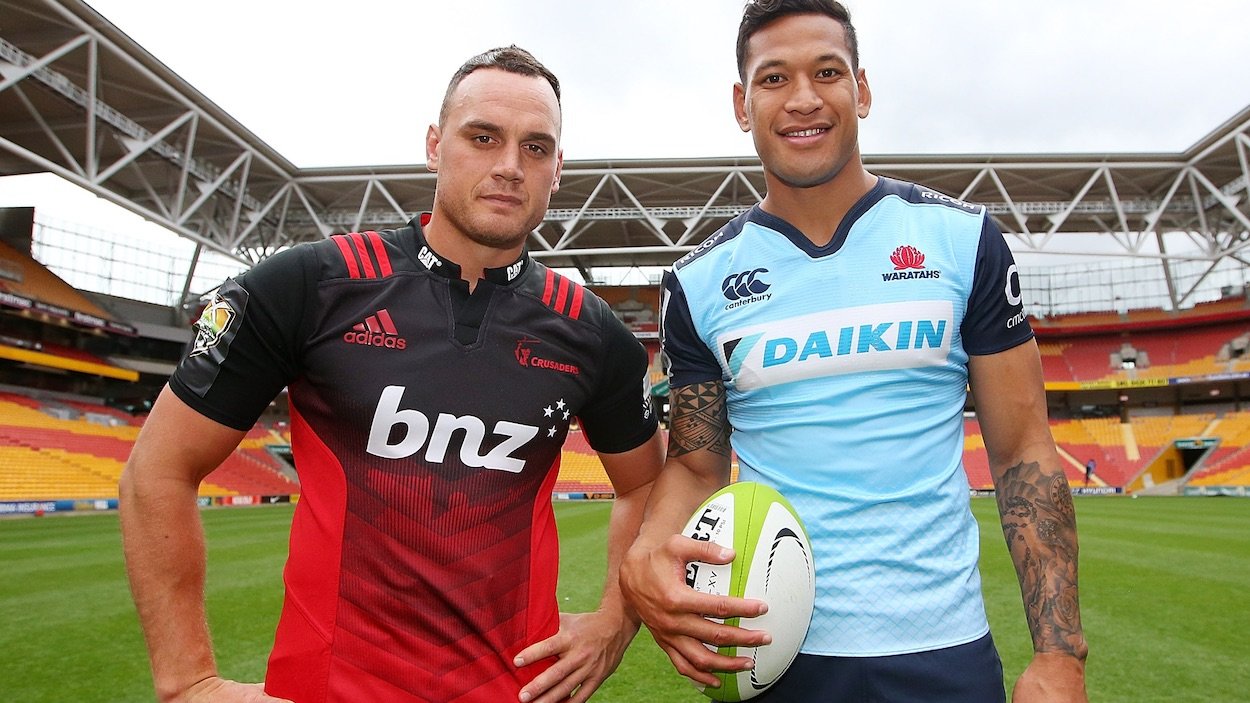New Zealand Rugby Playing a Short Game By Refusing To Let All Blacks Play a Shorter Game

Today’s announcement that there will be no current All Blacks playing in the Brisbane 10s is both a shocking blow and entirely predictable, writes Duncan Greive.
Update! In an exciting and mystifying development, Duco have countered the story suggesting the All Blacks “were never” likely to play with a release suggesting that 10 members of the end of year squad will in fact play in Brisbane. Two big and belligerent organisations saying contradictory things, with no way of them both being right? It’s the best Southern Hemisphere rugby clash we’re likely to see until at least June.
Despite the manifest importance of Brisbane to Super Rugby and the region’s fortunes beyond the international game – as well as the embarrassment of the men’s Sevens team’s Rio Olympics campaign – New Zealand Rugby seemingly remains indifferent to all games and teams that don’t involve the All Blacks fifteens’ side.
It’s predictable in some respects, to the point that their absence is hardly news at all – a 12-week stand-down following the end-of-year tour is part of the All Blacks’ collective agreement, and thus Brisbane would have required an exemption to get around it. And if one of the All Blacks’ sub-brands (as Sevens must be considered) was unable to find flexibility, it’s no surprise that a tournament owned and run by the upstarts at Duco met a similar fate.
Yet it points to a continuing lack of interest in growing the game beyond its most elite level, one which contrasts markedly with that of other codes. The NRL Nines, by comparison, were dripping with stars when they debuted, and have managed to retain much of their drawing power despite powerful coaches questioning the timing, and key players suffering serious injuries at the tournament.
By contrast, the absence of any All Blacks – despite a number being strongly rumoured to find the tournament a compelling proposition – will inevitably dim the wattage of the event significantly in its first year. This comes against a backdrop of Super Rugby facing falling ratings and decreasing crowds, despite its expansion into new markets last year.
[rugbypass-ad-banner id=”1473723660″]
Where the NRL appears to be heavily focused on growing and modernising the game, NZR is doing so haltingly and without much enthusiasm. 2016 should be remembered as a fairly ordinary year for the game – the loss in Rio, the woefully inadequate response to the Chiefs’ stripper scandal and a very public dressing down from a key sponsor at their big night out, offset by a debut Super title for the Hurricanes, another (now routine) excellent year for the All Blacks and the appointment, long overdue, of Farah Palmer as the first female board member in the 124-year history of the Union.
These were all good things, some historic – yet the sense is that the game’s centre of gravity is starting to shift. Last week we heard Aaron Cruden would be heading north to join the ever-growing selection of former All Blacks playing in France. And overnight came news that Dan Carter and Ali Williams might be part of a consortium assembling to save London Welsh, a a venerable club fallen on hard times. It’s not hard to imagine that the pair, who appear to be very much enjoying all that Europe offers, might look to establish a New Zealand bulwark in the English club competition, a further headache to a union which is already facing severe pressure on player salaries.
The problem for New Zealand Rugby is that their code is comparatively rare in having internationals at its pinnacle and core. From major global team sports like football and basketball, to regional powerhouses like cycling and rugby league, it’s clubs which are the dominant forces. Of major international team sports cricket is a notable exception – yet between the Big Bash and the IPL there are signs that it too might evolve into something more club-centric in the near future.
For now rugby remains secure in its structure, with the international game by far the biggest crowd and ratings draw. Yet the money sloshing about in France, and the gaudy names it is attracting, shows that this is not locked in as a scenario. The state of South African rugby shows that Northern raiders can decimate a country, while that of Australia – spread thin and struggling for crowds – suggests that this hemisphere’s dominance cannot be taken for granted.
The irony is that in protecting the All Blacks in Brisbane and elsewhere – both individual players and the supreme brand – New Zealand Rugby are yet again weakening their Super Rugby sides and the status of Southern Hemisphere club rugby more broadly. In time, that might prove a flawed strategy, one that allows the big money of France and England to eventually swallow the game whole.

































































